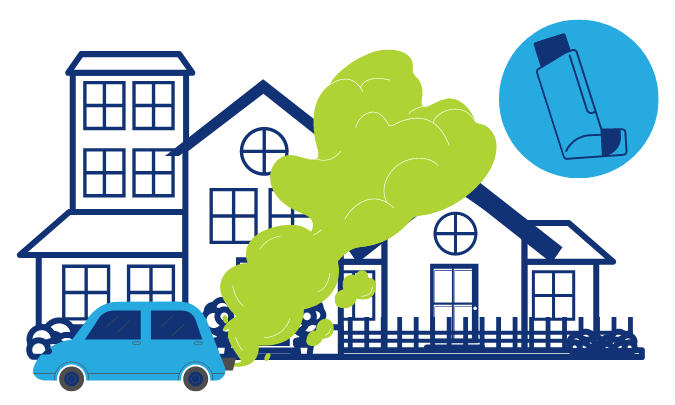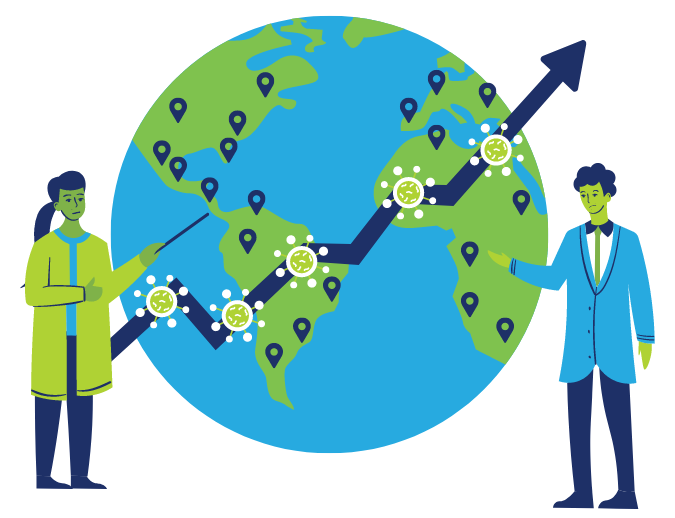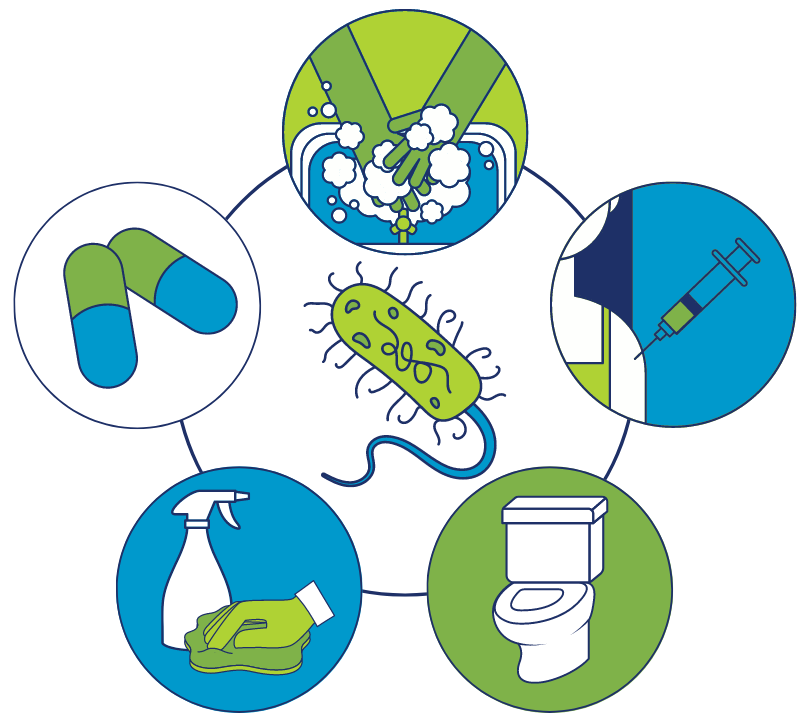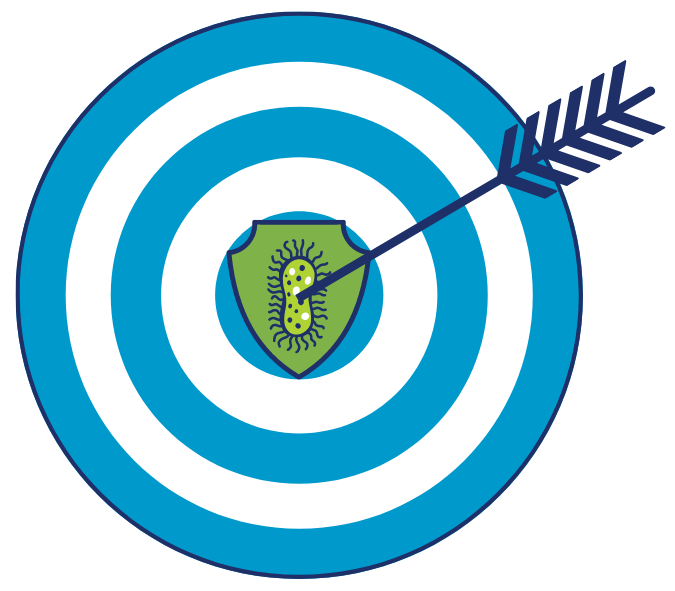
Sexually transmitted infections (STIs) are very, very common. One million people get infected with an STI every day, according to the World Health Organization. Many are easy to treat with antibiotics, or should be. These include gonorrhea, syphilis, and chlamydia. Like nearly all bacterial infections, they can and have begun to evolve resistance to antibiotics. The threat: these infections may again become untreatable, as they were in the days before antibiotics.
Sex workers have a very high risk of catching these infections.
So if sex workers have a higher risk of sexually transmitted infections, shouldn’t they get specialized treatment? It sounds like a good idea, says Salome Manyau, PhD, a researcher in the Department of Global Health and Development and the Faculty of Public Health and Policy at the London School of Hygiene and Tropical Medicine.
But things haven’t always worked out the way global health nonprofits and medical experts thought they would. Dr. Manyau spent months living among sex workers in Harare, Zimbabwe, and what she discovered may surprise many. It’s not so easy to just tell people to practice safe sex, and focusing treatments on one particular group of people can cause unexpected problems.
Listen as she tells One World, One Health host Maggie Fox what she found out in her research on antibiotic use among some of the most stigmatized people in the world.
Maggie Fox 00:00
Hello and welcome to One World, One Health with the latest ideas to improve the health of our planet and its people. I’m Maggie Fox. The world is battling problems, such as infectious diseases, climate change, and pollution, each linked to the other and all of them affecting each of us. This podcast is brought to you by the One Health Trust with bite-sized insights into ways to help.
Sex work, even saying the phrase can make people giggle or cringe or frown. But it’s not called the oldest profession for no reason. Sex work is a reality everywhere. Sometimes, it’s voluntary. Often, it’s not or it’s the only option. People treat sex workers differently, shaming them, throwing them in jail, forcing them into marginal areas. This can make it very difficult for these workers to get the medical treatment they need for the sexually transmitted infections — STIs — that are a reality for them. Poor and improper treatment of infections can lead to the rise of drug-resistant superbugs that are difficult to treat and that are spreading.
Dr. Salome Manyau studies how and why people use antibiotics and what happens because of this use. She’s a researcher in the Faculty of Public Health and Policy at the London School of Hygiene and Tropical Medicine. In this episode, we’re asking Dr. Manyau about what she’s learned from being immersed in the world of sex workers in Harare, Zimbabwe. Salome, thank you so much for joining us.
Salome Manyau 01:29
Hi, thank you for welcoming me.
Maggie Fox 01:32
You’ve spent some time embedded in a community — a hub of sex workers. Can you tell us about that experience?
Salome Manyau 01:40
During my PhD study, I was doing a research. Our interest was in studying antibiotic use. I was just moving from one scenario into another scenario. When I went into a sex workers’ hub, I noticed that sex workers have, I noticed that there was a lot of activity which involved the use of antibiotics by sex workers. That led me to stay for about six months, so that I can get a better understanding of what roles antibiotics played in their lives.
Maggie Fox 02:15
And how are these workers becoming infected so often in the first place?
Salome Manyau 02:20
Sex workers live a precarious life. There is so much precarity in their trade. In the country in which I was studying, people are undergoing economic austerity, and women at large are marginalized economically. What we noticed was that there was a trend when they were tending to rely more on sex work as a form of employment. If you compare what was in the past and the large numbers that are encountered, sex work was becoming a viable trade and them getting infected was also caused by the fact that in sex work, there is (a) need to use protection like condoms.
But the rule of the game when you get into this area is that the customers, the ones who do not want to use condoms will say, “if you have sex with no protection, I’ll pay you more.” So, for those who are economically challenged, their attempt was to find themselves having sex with no condoms because most of the times, it’s bread and butter issues. For them, it’s an empty choice. It’s not that they don’t know that having sex without a condom is not good for them, having sex without a condom, without protection, which risk them to getting an infection is a way of getting money and is a way of quick survival.
Maggie Fox 03:48
So, what you’re saying is these women are poor, they need to make money. Men will pay a lot more for sex without a condom. How much more? Like how big is this stress on these women?
Salome Manyau 04:00
Let me provide you with one of the quotations that I got from one participant. So, the participant says, “I get five or seven bonds — that’s about 25 cents in terms of US dollars — for one customer using a condom” and then she goes, “imagine the hard work involved in getting 100 bond per nights.” If you get someone who wants to spend the night with you, the cost for the whole night is 100 bond.
From 5 bond to 100 bond — that’s a very big difference. But if the person asks you to have sex without a condom, you tell him to top up to 400 bond. So, in terms of US dollar value, having sex without a condom from these participants, without a condom would be around like you get 100 USD, from 25 cents to around 100 USD. The most economical decision for you to make is to have sex without a condom because you get a lot of money for one night. So, the participants say why not get better money to pay my bills and feed my children. Only those with less responsibilities have the luxury to play it safe.
Maggie Fox 05:10
These sex workers are forced to have sex with dozens of men a day if they want to protect themselves with a condom, but they can take one customer, have unprotected sex, and make basically more than a day’s worth of money. And also, the amount of money that these women are being paid is unbelievably low.
Salome Manyau 05:32
The amount that they are now being paid is unbelievably low because the competition is now high. A lot of women who have now entered into the trade and they are now competing with each other for these participants. I got to know that you need to at least see 50 participants, 50 men, 50 clients in one night for you to get enough money to claim that you have worked in a day. So, it’s a lot of hard work because they’re competing.
Maggie Fox 06:04
This must put these women in an incredibly dangerous position in more ways than one. How does this kind of sex work affect the rise of antimicrobial resistance?
Salome Manyau 06:15
This kind of sex work affects antimicrobial resistance in the sense that the more one is tempted or one finds herself having unprotected sex, the more the likelihood of being infected. And the more the likelihood of being infected, the greater the use or greater the reliance on antimicrobials, the more you continue falling on antimicrobials. You are reducing the chances that the medicine will continue working effectively.
Another factor is that there are some who will probably are getting the antibiotics from the informal sector whose efficacy is not tested and is not known. And also this drives the danger of the efficacy of these medicines that they are relying on.
Maggie Fox 07:08
This is painting a really startling picture. These are women who are forced into sex work because of poverty, they’re forced into multiple sex acts a night or unprotected sex in order to make a living. They’re constantly being infected with these sexually transmitted infections. And so, they need constant antibiotic treatment. That is exactly the scenario that all the research is showing us leads to the rise of these antibiotic-resistant germs because people’s bodies are being constantly exposed. What is the fix?
Salome Manyau 07:39
For now, the problem that we see is that the way public health has been done is that it has relied on antibiotics as the central armor in dealing with STIs. And it looks like this is where the challenge is. And this is where we really need to rethink.
Maggie Fox 08:00
So, there’s well-meaning efforts to try to provide treatment to these women. And you talk a little bit about that in your research. How are the sex workers getting a different type of treatment than other people in the country?
Salome Manyau 08:05
Starting from a historical perspective, sex workers once were undermined and shunned, but recently, it looks like there’s been a shift into more of empowerment paradigms that then look into the empowerment of these women instead of calling them prostitutes. We now call them sex workers and we have found ourselves in a scenario where, instead of keeping them in public health clinics, where they were shunned by the public health sector, we now have some programs that are led by international NGOs that seclude these women, that separate them from the public health system and providers that are meant for them so that they have access to treatment.
So, we are now in this era where they can have their own place and in this own place, they have unique access to free antibiotics.
Maggie Fox 09:12
Okay. So, these non-governmental organizations (NGOs), these nonprofits are providing clinics specific to the sex workers. That sounds like a good thing, but is it not?
Salome Manyau 09:22
To the sex workers, it sounds like a good thing. This is a program; it has not yet been rolled out to many parts of the country but it has been rolled out in some regions and in some areas. Yes, to the women who are getting user friendly services at a sex worker dedicated clinic, It sounds like a good thing because it is providing them the service they want. But when you look at it from a holistic perspective, it is narrow and exclusionary because in my work, I was living in the community.
The community did not just constitute sex workers. It also constituted other people. While these ones we’re seeing the sex workers’ clinic is for us, it was made for us, the other ones with this grant, we didn’t say because the sex workers’ clinic was providing services only to the sex workers. For them, these other women in quotations, let me call them the married women who are not involved in sex work, they were pointing an accusatory finger at the sex workers saying, “they are bringing STIs to our husbands. We get infected. And we are the ones who are made to then go to the clinic.
And we are treated at the clinic like sex workers, while they are treated like queens at in their clinic.” So, there are tensions within the community and the sex workers’ clinic some members would call it like it’s an evil clinic because it’s promoting sex work while they were excluded.
Maggie Fox 11:02
So, this drove resentments within the community. Did this resentment, does it boil over into the spread of antimicrobial resistance or disparities in access to treatment?
Salome Manyau 11:13
First of all, it draws into disparities in access to treatments because the other issue is that when you get to the clinic, you have to first pay a user fee or five USD, then you have to pay for the antibiotic, and the other one does not have to do anything. And for these women, we’ve got a lot of issues here at play. First of all, they are afraid of being stigmatized. So, one, there is a higher risk that they don’t even go to the clinic. Hence, they are forced to to seek treatment very, very late and which promotes resistance also because there is less seeking-of-treatment behavior that is promoted.
Maggie Fox 11:58
So, what you’re saying is if you just treat the sex workers and provide them special treatment, but don’t provide the same access to other people in the community, the antimicrobial resistance and the risks are rising in the people who aren’t sex workers. So, there’s two things going on here, you’re over treating one group and under treating the other group.
Salome Manyau 12:18
Yes, two things are happening. In one scenario, you’re over treating, you’re under treating, and the men having access to the wife and having access to the sex worker continue in the game. So, it’s a dilemma. In one interview that I had with this participant, she had been doing very well, having protected sex and protected sex was a model of sex work. But that changed when she got infected with malaria. And when she was telling me, she said, “you know, we work at night standing in the streets looking for customers and there are open ditches with —— water.
So, I got infected with malaria, was out of the business for quite a long time whilst I was recovering. And when I came back, there were a lot of bills too, to be paid.” So, she agreed to having sex without a condom in order to make a lot of money fast to pay the bills because she has a mother who is blind in the rural areas whom she’s also taking care. And two children on her, because her husband, he abandoned her when she was pregnant with the second child. But the unfortunate thing is that from that act of having sex without a condom, she not only obtained an STI but became pregnant. And when she discovered that she had an STI and it was quite itchy, she also was now aware that she was also pregnant.
She went to that sex workers’ clinic but now the fact that she was pregnant meant that she no longer qualified there because for them now, they are now concerned with the baby. So, they are now having the interest of the baby in mind like you need good antenatal care and they are referring it to the clinic. She goes to the public health clinic and they are on strike.
So, during the day I had an interview, the public health strike was still ongoing. They told her to go to the private sector clinic but she had no money. So, she was pregnant, had an itchy STI, was trying to raise money by having sex without a condom because she knew she was infected and the progress that she was making was very slow. What we need are packages that are realistic, that look at the entire society without saying you are pregnant, you are a sex worker, you’re not a sex worker. We should get out of this whole idea of creating categories and start looking at a health system that addresses the problem for everyone without categorizing them.
Maggie Fox 15:10
Salome, thank you so much for joining us.
Salome Manyau 15:14
Yep. Thank you so much for having me Maggie.
Maggie Fox 15:16
If you liked this podcast, which is brought to you by the One Health Trust, please share it by email or your favorite social media platform. And let us know what else you’d like to hear about at [email protected] Thanks for listening.
Ramanan Laxminarayan 15:32
Thank you for listening to One World, One Health brought to you by the One Health Trust. I’m Ramanan Laxminarayan, founder and president of the One Health Trust. You can subscribe to One World, One Health on Spotify, Apple podcast, or wherever you listen to podcasts. Follow us on social media at One Health Trust (one word) for updates on One World, One Health and the latest in research on One Health issues like drug resistance, disease spillovers, and the social determinants of health. Finally, please do consider donating to the One Health Trust to support this podcast and other initiatives and research that help us promote health and well-being worldwide. Until next time.
Guest

Dr. Salome Manyau is a Social Scientist based at the Biomedical Research and Training Institute nested within The Research Unit in Zimbabwe (THRU-ZIM) where she has worked on a range of health challenges including HIV and AIDS, multidrug-resistant tuberculosis, One Health and antimicrobial resistance (AMR), and Adolescent Health. Since 2018 she has been a member of the Anthropology of Antimicrobial Resistance research group at the London School of Hygiene and Tropical Medicine, where she has just completed her doctorate in the Department of Global Health and Development. Her PhD research was an ethnographic study on the roles that antibiotics play in the lives of medicine providers, urban residents, and sex workers in Harare, Zimbabwe. Her methodological expertise is in the use of qualitative methods and ethnography to study complex health-related problems, and process evaluation of complex health interventions. She is committed to contributing to the improvement of health through high-quality research.
Credits
Hosted and written by Maggie Fox
Special guest: Salome Manyau
Produced and edited by Samantha Serrano
Music composed and sound edited by Raquel Krügel
Transcript edited by Dipyaman Sengupta







